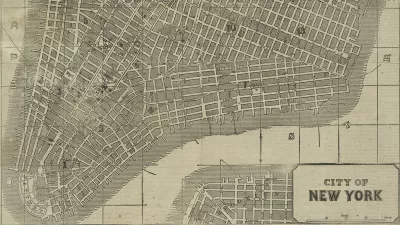The Pacific Northwest's competing and sometimes conflicting stakeholders have created a master plan for the use—and also the preservation—of marine resources.

On October 12, the Department of Ecology in Washington State released a document it has named the Draft Marine Spatial Plan for Washington’s Pacific Coast.
That somewhat uninventive title is a disservice to what Washington has actually done—created a collaborative master plan using the increasingly popular process called Marine Spatial Planning.
Marine Spatial Planning (MSP) aims, more or less, to take the basic tenets of modern land-use planning—engaging many stakeholders, considering commercial, social and environmental trade-offs—and establishing comprehensive plans for marine areas.
Massachusetts and Rhode Island have employed MSP for ocean-resource master plans, and the process is underway in San Diego; Marine Spatial Planning is also in use for various projects around the nation and the world, particularly in places most affected by climate change. In Washington, observers hope the process can dampen longstanding conflicts between interests, and provide "a framework to guide decisions about new development on the outer coast."
The Draft Marine Spatial Plan for Washington's Pacific Coast is now open to public comment.
FULL STORY: HOW WILL WASHINGTON’S COAST DEVELOP?

Alabama: Trump Terminates Settlements for Black Communities Harmed By Raw Sewage
Trump deemed the landmark civil rights agreement “illegal DEI and environmental justice policy.”

Planetizen Federal Action Tracker
A weekly monitor of how Trump’s orders and actions are impacting planners and planning in America.

The 120 Year Old Tiny Home Villages That Sheltered San Francisco’s Earthquake Refugees
More than a century ago, San Francisco mobilized to house thousands of residents displaced by the 1906 earthquake. Could their strategy offer a model for the present?

In Both Crashes and Crime, Public Transportation is Far Safer than Driving
Contrary to popular assumptions, public transportation has far lower crash and crime rates than automobile travel. For safer communities, improve and encourage transit travel.

Report: Zoning Reforms Should Complement Nashville’s Ambitious Transit Plan
Without reform, restrictive zoning codes will limit the impact of the city’s planned transit expansion and could exclude some of the residents who depend on transit the most.

Judge Orders Release of Frozen IRA, IIJA Funding
The decision is a victory for environmental groups who charged that freezing funds for critical infrastructure and disaster response programs caused “real and irreparable harm” to communities.
Urban Design for Planners 1: Software Tools
This six-course series explores essential urban design concepts using open source software and equips planners with the tools they need to participate fully in the urban design process.
Planning for Universal Design
Learn the tools for implementing Universal Design in planning regulations.
Clanton & Associates, Inc.
Jessamine County Fiscal Court
Institute for Housing and Urban Development Studies (IHS)
City of Grandview
Harvard GSD Executive Education
Toledo-Lucas County Plan Commissions
Salt Lake City
NYU Wagner Graduate School of Public Service





























